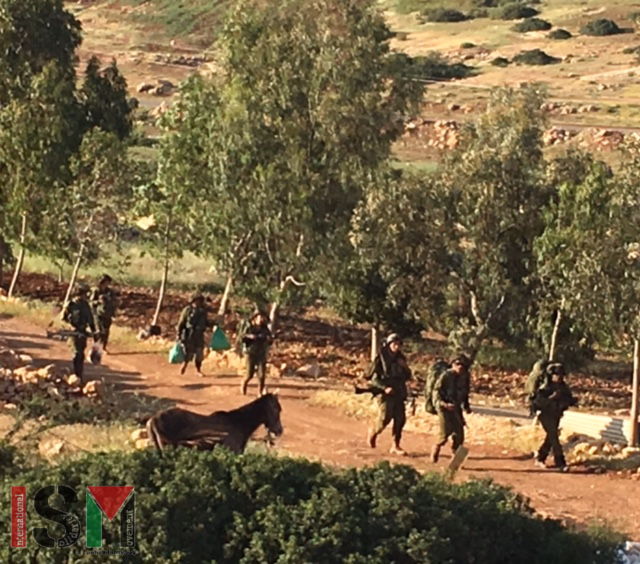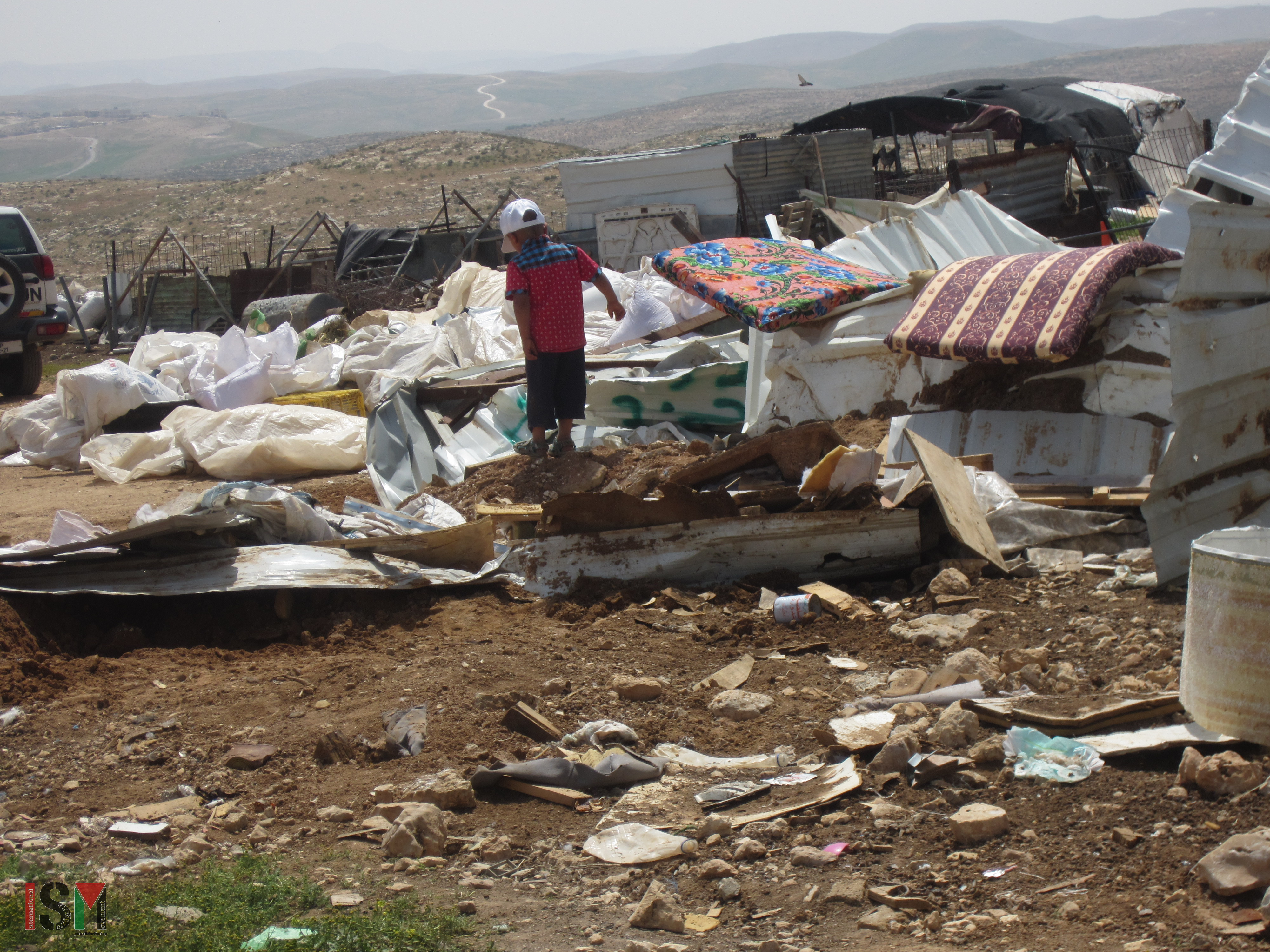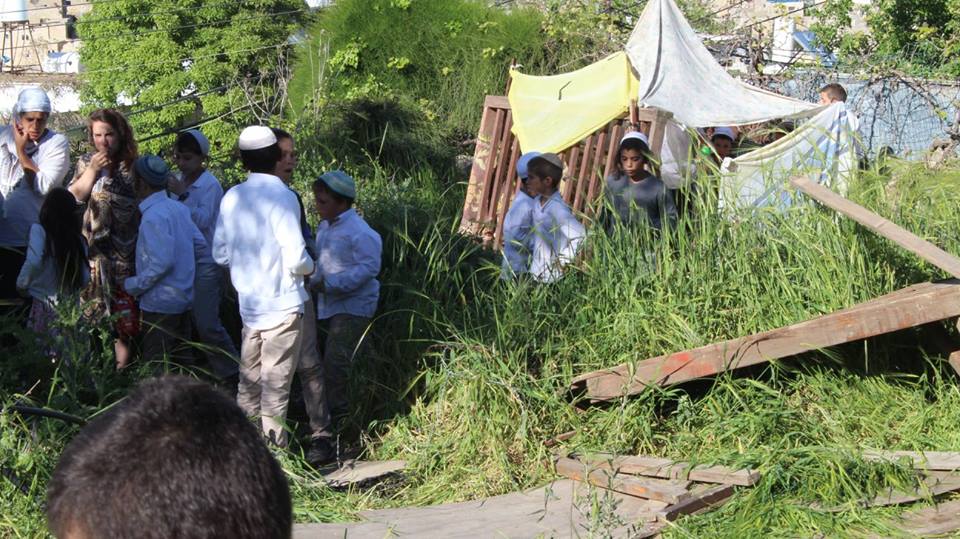-
IOF Military Training Exercises in the Jordan Valley
4th April 2016|International Solidarity Movement | Al-Khalil Team, occupied Palestine In the north of the Jordan Valley, and adjacent to the town of Tubass, are three agricultural communities: Yarza (with 4 families), Ibzk (13 families) and Samre (11 families). These families have existed on this land for hundreds of years, and some were born in […]
-
House demolitions in Um Al-Khair leaving children homeless
7th April 2016 | International Solidarity Movement, Al-Khalil Team | Hebron, occupied Palestine Wednesday the 6th of April 2016 at 6 o’clock in the morning, Israeli forces demolished 6 homes in the village of Um Al Khair in the south Hebron Hills in the southern part of the occupied West Bank in Palestine. 36 people […]
-
Settlers expropriate Palestinian garden as police stand by
4th April 2016 | International Solidarity Movement, al-Khalil team | Tel Rumeida, al Khalil, occupied Palestine On Saturday 3rd of April 2016 settlers entered land belonging to Muhammad Abu Haikal in the Tel Rumeida area of Hebron on the occupied West Bank in Palestine. The settler children built a tent and then brought other settlers […]
Action Alert An Nabi Saleh Apartheid Wall Arrests BDS Bethlehem Bil'in Cast Lead Demonstration Denial of Entry Ethnic Cleansing Farmers Gaza Global Actions Hebron House Demolition International law Israeli Army Jerusalem Live Ammunition Nablus Ni'lin Prisoner Ramallah Rubber-coated steel bullets Settlement Settlers Settler violence Tear-Gas Canister Video



